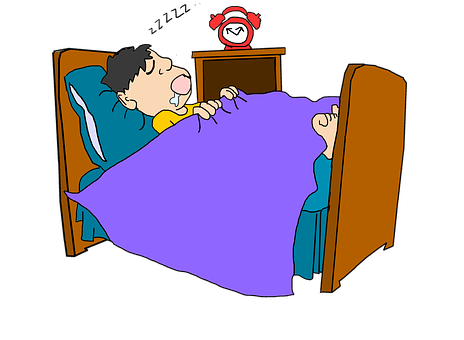Explore the World's Best Ideas
Join today and uncover 100+ curated journeys from 50+ topics. Unlock access to our mobile app with extensive features.
Snoring isn’t harmful
Although snoring may be harmless for most people, it can be a symptom of a life-threatening sleep disorder called sleep apnea, especially if it is accompanied by severe daytime sleepiness.
Sleep apnea can be treated; men and women who snore loudly, especially if pauses in the snoring are noted, should consult a physician.
154
883 reads
You can "cheat" on sleep
Sleep experts say most adults need between seven and nine hours of sleep each night for optimum performance, health, and safety.
The resulting sleep deprivation has been linked to health problems such as obesity and high blood pressure, negative mood and behavior, decreased productivity, and safety issues in the home, on the job, and on the road.
162
806 reads
Turning up the radio
... opening the window, or turning on the air conditioner are effective ways to stay awake when driving.
These "aids" are ineffective and can be dangerous to the person who is driving while feeling drowsy or sleepy.
It's best to pull off the road in a safe rest area and take a nap for 15-45 minutes. Caffeinated beverages can help overcome drowsiness for a short period of time.
141
627 reads
Sleeping teens are lazy
According to sleep experts, teens need at least 8 to 10 hours of sleep each night, compared to an average of seven to nine hours each night for most adults.
Their internal biological clocks also keep them awake later in the evening and keep them sleeping later in the morning. However, many schools begin classes early in the morning, when a teenager's body wants to be asleep. As a result, many teens come to school too sleepy to learn, through no fault of their own.
194
765 reads
Insomnia
Difficulty falling asleep is one of four symptoms generally associated with insomnia.
The others include waking up too early and not being able to fall back asleep, frequent awakenings, and waking up feeling unrefreshed.
Insomnia can be a symptom of a sleep disorder or other medical or psychological/psychiatric problems, and can often be treated.
167
674 reads
Daytime sleepiness
Excessive daytime sleepiness is a condition in which an individual feels very drowsy during the day and has an urge to fall asleep when he/she should be fully alert and awake.
The condition, which can occur even after getting enough nighttime sleep, can be a sign of an underlying medical condition or sleep disorder such as sleep apnea. These problems can often be treated.
166
605 reads
Quality of sleep
Studies have found a relationship between the quantity and quality of one's sleep and many health problems.
- Insufficient sleep affects growth hormone secretion that is linked to obesity;
- Blood pressure usually falls during the sleep cycle, however, interrupted sleep can adversely affect this normal decline, leading to hypertension and cardiovascular problems.
- Insufficient sleep impairs the body's ability to use insulin, which can lead to the onset of diabetes.
191
662 reads
Sleep declines with age
While sleep patterns change as we age, the amount of sleep we need generally does not.
Older people may wake more frequently through the night and may actually get less nighttime sleep, but their sleep need is no less than younger adults. Because they may sleep less during the night, older people tend to sleep more during the day.
153
550 reads
During sleep, your brain rests
The body rests during sleep, however, the brain remains active, gets "recharged," and still controls many body functions including breathing.
143
608 reads
Waking up in the middle of the night
Waking up in the middle of the night and not being able to go back to sleep is a symptom of insomnia.
If you do not fall back asleep within 15-20 minutes, you should get out of bed, go to another room and engage in a relaxing activity such as listening to music or reading. Return to bed when you feel sleepy. Avoid watching the clock.
172
685 reads
IDEAS CURATED BY
Elaina Y.'s ideas are part of this journey:
Learn more about health with this collection
Different types of fasting
How fasting can improve your overall health
How to prepare for a fast
Related collections
Similar ideas
4 ideas
8 ideas
Sleep Myths That Harm Health
healthline.com
8 ideas
Stages of Sleep - Sleep Foundation
sleepfoundation.org
Read & Learn
20x Faster
without
deepstash
with
deepstash
with
deepstash
Personalized microlearning
—
100+ Learning Journeys
—
Access to 200,000+ ideas
—
Access to the mobile app
—
Unlimited idea saving
—
—
Unlimited history
—
—
Unlimited listening to ideas
—
—
Downloading & offline access
—
—
Supercharge your mind with one idea per day
Enter your email and spend 1 minute every day to learn something new.
I agree to receive email updates


